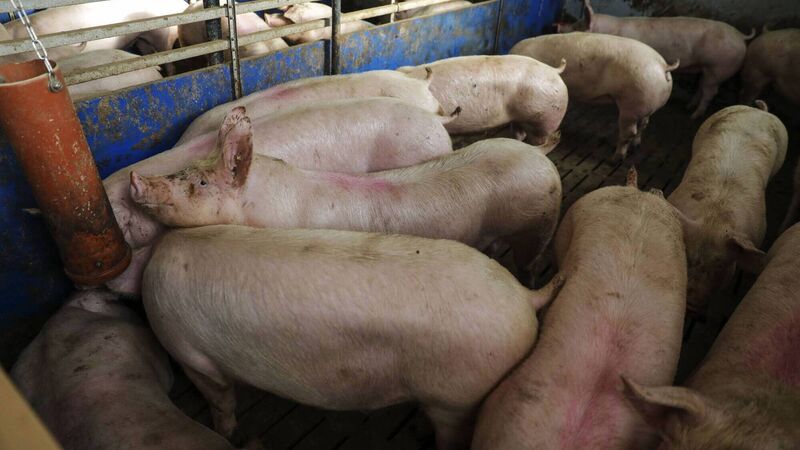Suzanne Harrington: 'You are what you eat' has a global meaning now

Pigs gather around a feeder in an indoor pigsty. Picture: Alex Kraus/Bloomberg
IN the supermarket queue, which now counts as socialising, the chatty checkout man tells me how he gave 'Veganuary' a go and found it easy, so extended it to February: He couldn’t think of a good reason to not. We rhapsodised briefly about vegan Magnums, before I went home to write about the pandemic: Unless you're a fantasy novelist, that's all anyone writes about these days.
To that end, I speak with University College Dublin sociologist Kathleen Lynch. She talks about the basis of Steven Soderbergh’s 2011 film, which, until last year, would have been sci-fi; post-Covid-19, it's almost a documentary. That basis of which she spoke is the relationship between viruses and the way we treat other species.






